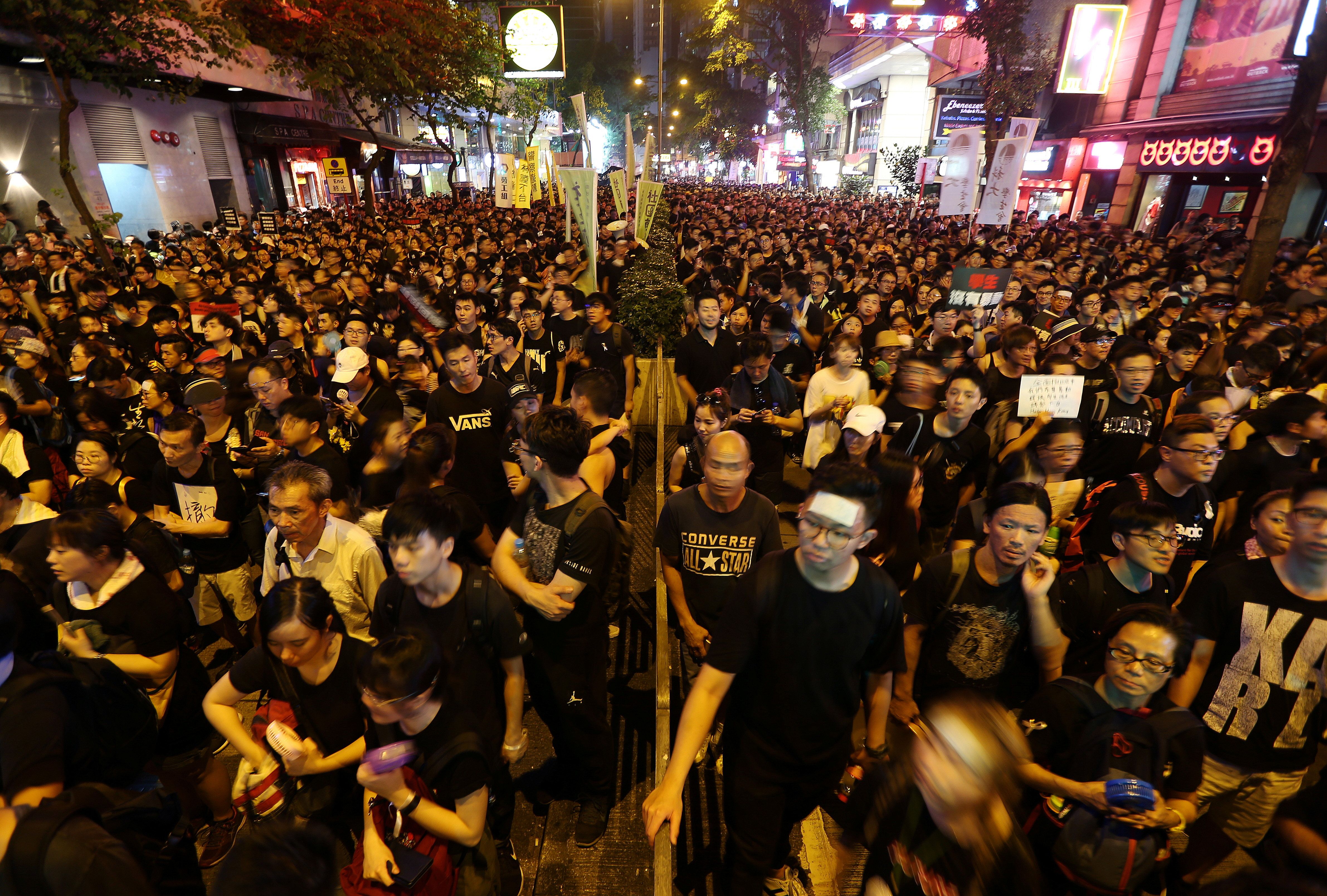Hong Kong's democracy movement scored a big win over the weekend by forcing the territory's chief executive to suspend plans to enact a law that would allow for the extradition of Hong Kongers to the Chinese mainland. Carrie Lam, Hong Kong's chief executive, has apologized in hopes that the swelling crowds, estimated at more than two million people, might go home.
But the worst political crisis to hit Hong Kong since the United Kingdom handed it back to China in 1997 is far from over. The protesters believe more action is needed to protect the independence of Hong Kong's political and court systems and to safeguard the basic rights of the territory's citizens.
The crucial next questions:
How will Beijing respond to this setback? By all indications, Beijing wanted this law to be passed as part of President Xi Jinping's goal of bringing Hong Kong – as well as self-governing Taiwan – under greater control from Beijing.
But the protesters' victory sets a dangerous precedent by showing that a big-enough mobilization of people can deny China something it wants. So far, Beijing's response has been to blame Lam for mismanagement and to suggest that foreigners are stoking the protests.
Mr. Xi arguably has bigger fish to fry at the moment (the deepening trade war with the United States and a potential upcoming meeting with Donald Trump at the G20 summit in Osaka next week). And since tight state control of Chinese media means that most people on the mainland have no idea that millions of protesters faced down the government, he can probably afford to make a tactical retreat on the extradition law -- for now.
But will the protesters force Beijing to act sooner rather than later? The intoxication of success sometimes encourages protesters to make new and tougher demands. For many in Hong Kong, suspending the law isn't enough; they want it dead. What's more, far from accepting Lam's apology, the streets are now calling for her resignation.
That's a more serious and immediate problem for China's leadership. Postponing the law to try to quiet the crowd is one thing. Allowing the streets to take down a government official is quite another.
The bottom line: Chinese officials know that inaction may encourage, rather than quiet, the triumphant crowds. More repressive action by the state is dangerous, but if protester demands continue to mount, Beijing may see a rougher course of action as unavoidable. And no one knows where that might lead.
